test
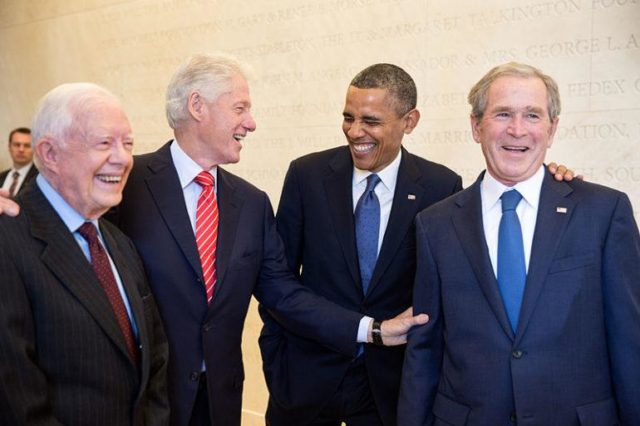

‘The job of United State’s President is never an easy one. However, the following 40 gentlemen embraced the role and excelled at it. They each made contributions to the country that changed the course of mankind forever. Read on to hear about the many accomplishments of these decorated leaders of the greatest country in the world
40. Warren G. Harding
When Warren G. Harding was elected President he made history in a significant way. Harding won the election in which women were permitted to vote for the first time. This started a precedent that brought more equality into gender relations.
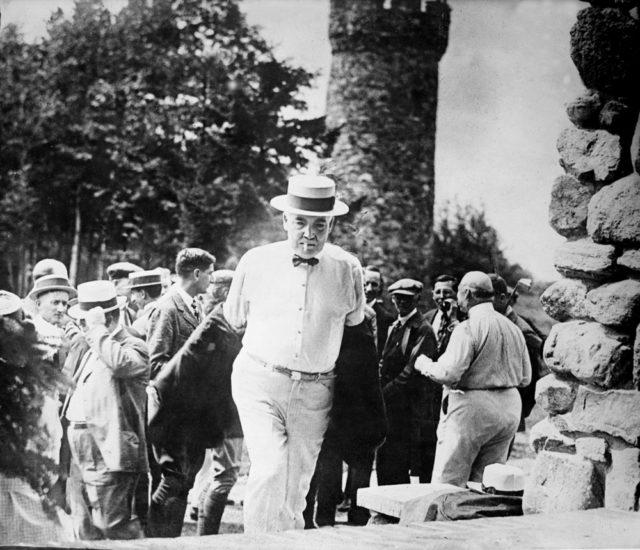 shutterstock
shutterstockPrior to his presidential election, Harding worked as a newspaper owner in his home state of Ohio. Throughout his political career, he remained based in Ohio, only traveling out of state when necessary. Regardless, he still had a successful political career that made q long lasting impact on the country.
39. William Henry Harrison
Prior to his death, William Henry Harrison only served as U.S. President for 30 days before he passed away. A rainy inauguration day gave Harrison pneumonia that ultimately took his life. The illness was reportedly blamed on Harrison’s two hour speech, which he gave with no warm coat on. William Henry Harrison’s wife, Anna, did not accompany him to Washington, DC, because she was too ill to travel. The Harrisons’ daughter-in-law served as White House hostess.
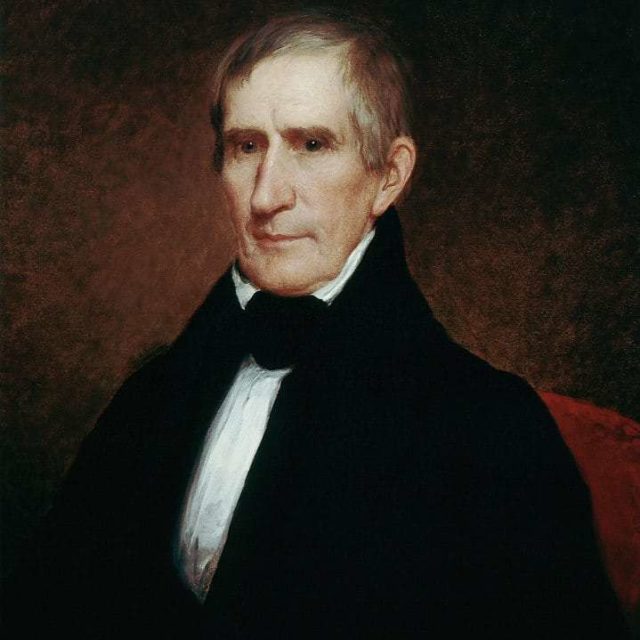 history com
history comPrior to the American Revolution, Harrison was the last President to serve in office. His biggest claim to fame during his short term was commanding the U.S. Military. This led to winning the Battle of Tippecanoe in 1811. It also earned Harrison’s “Old Tippecanoe” nickname.
38. John Tyler
After the passing of William Henry Harrison from pneumonia, John Tyler he became the next U.S. President. As the president he held office during the 1841-1845 term. Since he resumed the role of President because of Harrison’s death, he did not have to be elected by the people. During his term, slavery was a pressing issue in society.
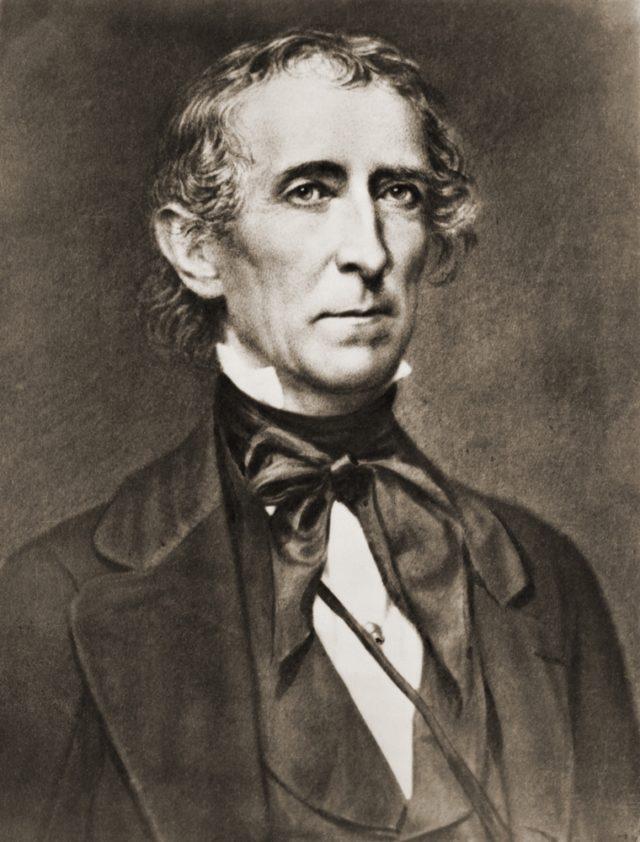 shutterstock
shutterstockIt was Tyler’s belief that each state should deal with the issue in their own way, along with other issues. Due to his refusal to be passive, he was given “His Accidency” as a nickname. The nickname was chosen by Congress members who disliked Harrison. They even tried and failed to have him impeached.
37. Herbert Hoover
The tumultuous time Herbert Hoover led the U.S. through made him one of the most popular Presidents. When Stamford University began operating, Hoover was in its first graduating class. After college and before his political career, he spent time working in China.
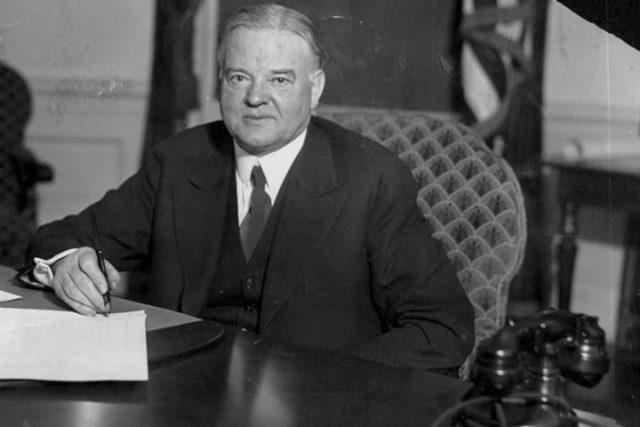 hoover.archive gov
hoover.archive govAt the start of World War 1, Hoover was in Europe helping American tourists safely evacuate from Germany and France. Leading the U.S. through the Great Depression, Hoover fought for companies to keep their employees on the payroll. He also fought to get taxes lowered. He guided the U.S. through its worst economy in history.
36. Millard Fillmore
Like John Tyler, Millard Fillmore fell into his Presidency. He assumed the reigns when the current President, Zachary Taylor died of cholera during his term.
Upon Taylor’s death, Fillmore had to start over with a new cabinet. Taylor’s cabinet members quit when he died. Fillmore, as President, started his term by agreeing to the Compromise of 1850. The failed Compromise was supposed to keep the North and South from rifting.
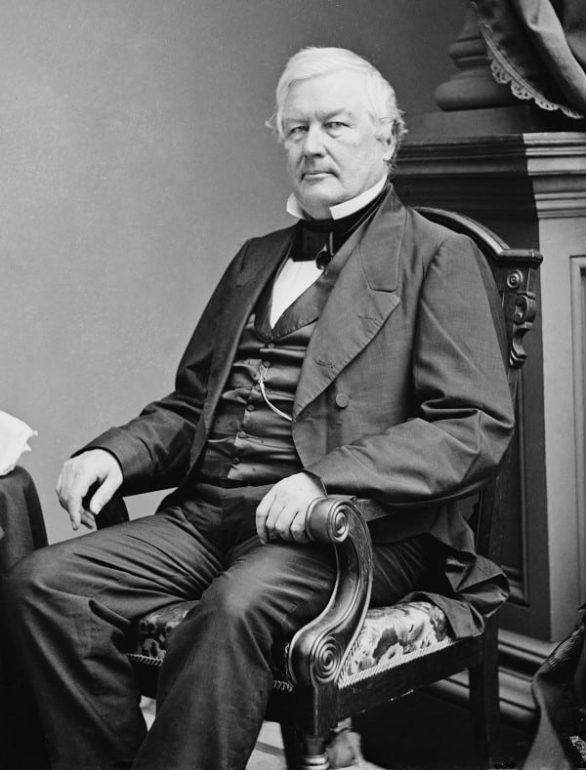 Wikipedia
WikipediaWhat Fillmore did succeed at was foreign affairs. The U.S. developed a positive relationship with Japan as a result. This led to a ban on all foreign trade. However, ships traveling from America were then permitted to obtain water, food and emergency assistance from Japan.
35. Chester Arthur
After the 1881 assassination of James Garfield, Chester Arthur took over as President. He served in office until 1885, during which he enabled a law for the Pendleton Act. As a Civil Service Reform Act, it improved the jobs of government employees.
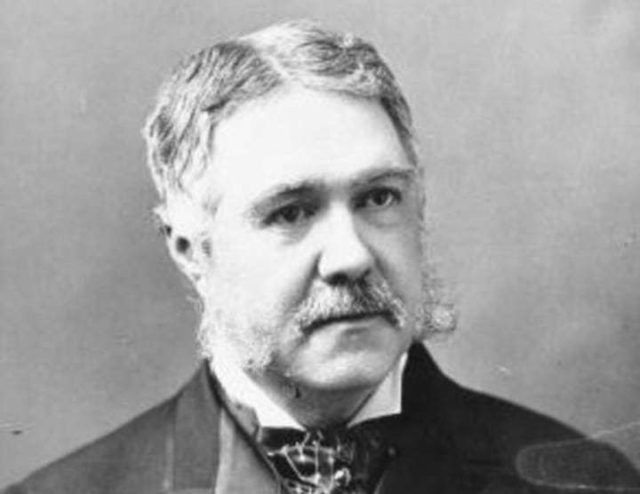 bloomberg
bloombergPeople were able to acquire government jobs without politics interfering. Instead, jobs were landed based on a potential candidate’s merits only. When this Act was launched, people had to pass an exam to obtain a job with the government. In addition to the act, Arthur was also responsible for the first U.S. immigration law.
34. Martin Van Buren
Martin Van Buren was the first US president not of British or Irish descent (his parents were Dutch), the first president born a United States citizen. Three months into Martin Van Buren’s Presidency The Panic of 1837 occurred. This was an economic crisis and marked the first great depression of the country. Through his work as President, Van Buren earned the nickname, “the Little Magician.”
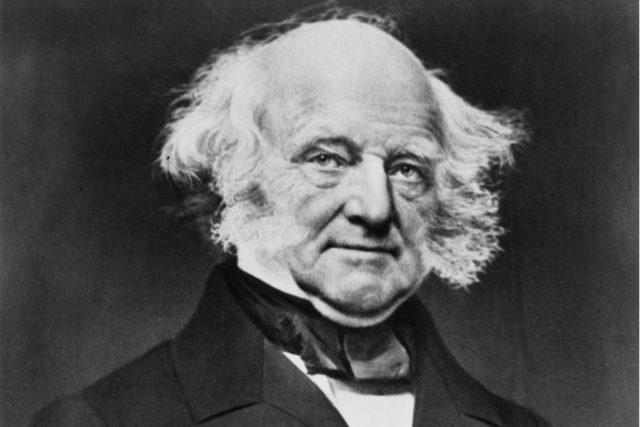 shutterstock
shutterstockHe fought for the U.S. Treasury to be kept separate from government funds. Buren wanted to avoid political opinions tainting the Treasury. His policies would eventually lead to making the U.S. economy healthy again. Since this happened after his Presidency, many people don’t attribute the change to him.
33. George W. Bush
Between 2001 and 2008 George W. Bush served as President. Guiding the country through the tragedy of 9/11, he created the U.S. Department of Homeland Security. Other accomplishments during his presidency include the Afghanistan invasion and Iraq’s second Gulf War. The invasion led to overthrowing Saddam Hussein. Bush’s presidential success can be attributed to his previous political positions.
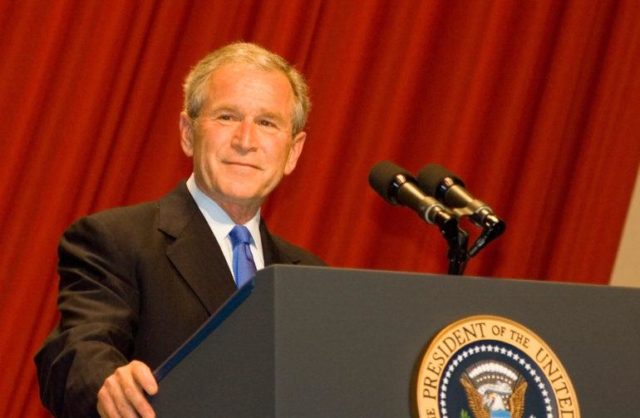 shutterstock
shutterstockLike his father before him, George W. Bush attended Yale as an undergraduate, earning a history degree in 1968. For further training, though, the younger Bush came to Harvard Business School, graduating with a master’s degree in business administration in 1975. Those were tough years, the Cambridge area was a “miserable place to be a Republican,” especially considering Massachusetts’ reputation as a Democratic stronghold, recalled Bush’s aunt, Nancy Bush Ellis.
32. Zachary Taylor
Zachary Taylor served one of the shortest presidential terms in history. After less than a year in office, he passed away of cholera. In the short time he was President, he focused on the issue of slavery.
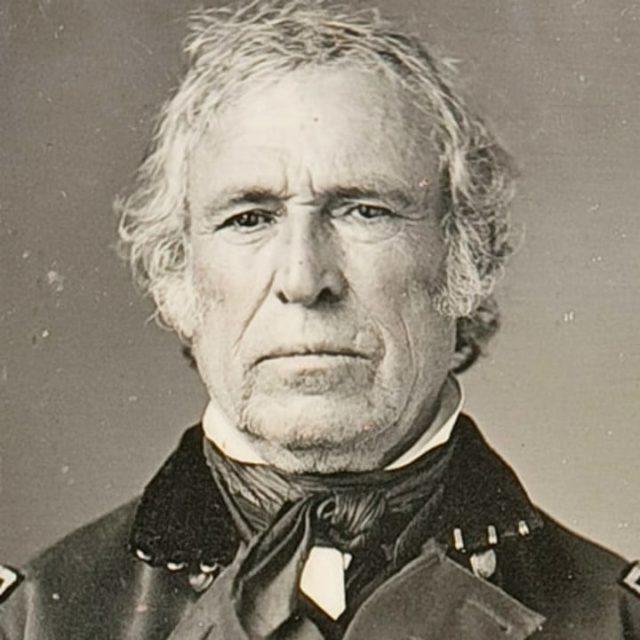 biography com
biography comDespite owning slaves himself, Taylor fought against the idea. He also felt that California and New Mexico needed to become official states in America. Prior to his presidency, he was a hero during the Mexican-American War.
31. Rutherford B. Hayes
Like Bush, Rutherford B. Hayes became President after a recount of electoral votes. It took several months for this process to be completed. Hayes began his career in politics as part of the Whig, a party which no longer exists. He went on to serve three terms as a Governor in Ohio.
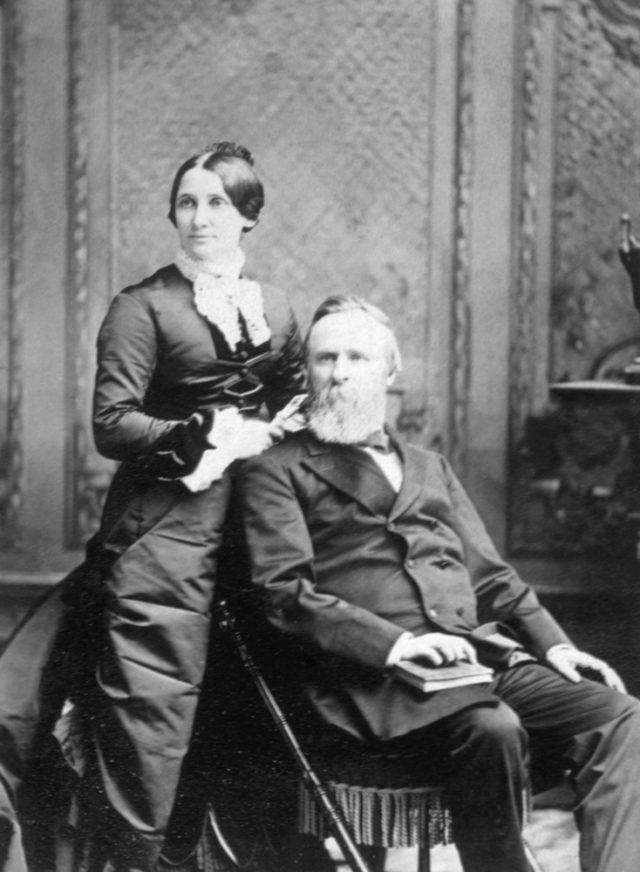 President Rutherford B. Hayes with First Lady Lucy Ware Webb Hayes, ca. 1880 /Shutterstock
President Rutherford B. Hayes with First Lady Lucy Ware Webb Hayes, ca. 1880 /ShutterstockThough he was a staunch civil rights activist, Democratic Congress members impeded him. Before Chester Arthur became President, Hayes was the first to ensure government workers had to take a civil service exam to secure employment.
30. Benjamin Harrison
Benjamin Harrison was known for successfully navigating international relations. Congress members were extremely fond of Harrison as well. He served in the American Civil War as a Union Army member. His work for the U.S. included getting six states to become part of the union.
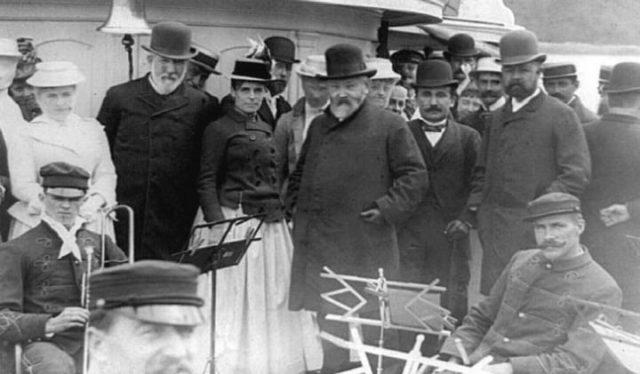 World Atlas
World AtlasHarrison is also remembered for his efforts to ensure African Americans had the right and the opportunity to vote. In addition, Benjamin was the grandson of William Henry Harrison.
29. James Garfield
James Garfield made the transition from House of Representatives to U.S. President. He is the only one to have done this. Prior to his run in the House and as the President, he served in the American Civil War. Garfield was a Union major general during that time.
He was also known for fighting in several Civil War battles, including Chickamauga, Middle Creek and Shiloh. Achievements during his presidency include ending postal service corruption. He also helped build the Navy and even believed in and facilitated a universal education system.
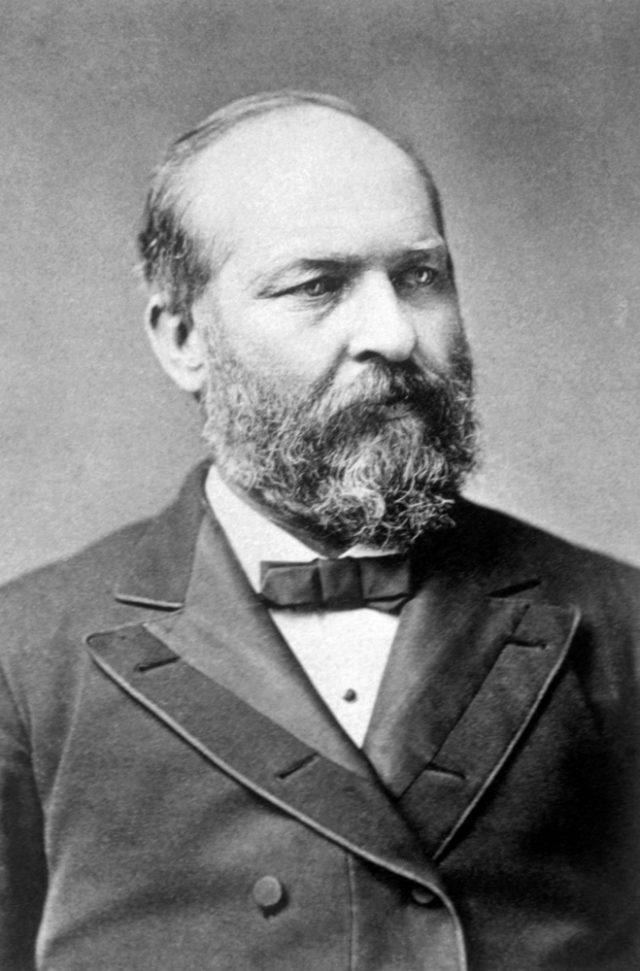 shutterstock
shutterstockPresident James Garfield,was in office less than 4 months, when he was shot by Charles J. Guiteau, a disgruntled office seeker. He died 11 weeks later. Prior to his assassination in 1881 he insured African Americans were welcomed into Congress.
28. Richard Nixon
Richard Nixon is perhaps one of the best known Presidents in the country’s history. He may be best known for his foreign affairs negotiation skills. Throughout his presidential term, he facilitated diplomatic relations between China and the U.S.
He also insured the end of the involvement America had in the Vietnam war. Nixon was responsible for sending home prisoners of war. He signed a treaty between the U.S. and the U.S.S.R, known as the Anti-Ballistic Missile Treaty.
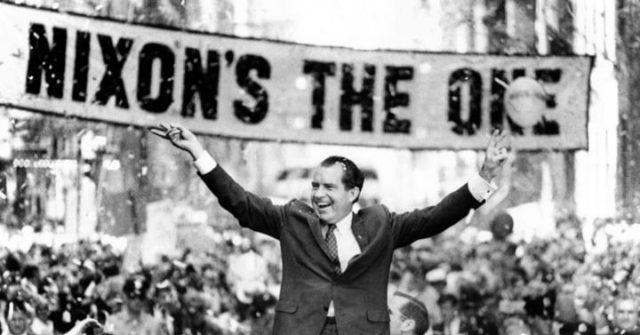 Pinterest
PinterestHe was also the one behind the launching of the Environmental Protection Agency. His “War on Cancer” made headlines at the time. Nixon’s other accomplishments include making an anti-crime bill the law and pushing for the South’s desegregation.
27. Calvin Coolidge
After the death of Warren Harding, Calvin Coolidge served as U.S. President from 1924 to 1929. Foreign policies were Coolidge’s passion. He was known for being extremely supportive of small government.
He also supported equality for all races. Despite his efforts to encourage civil rights and race equality, much of the government bodies often didn’t approve of him.
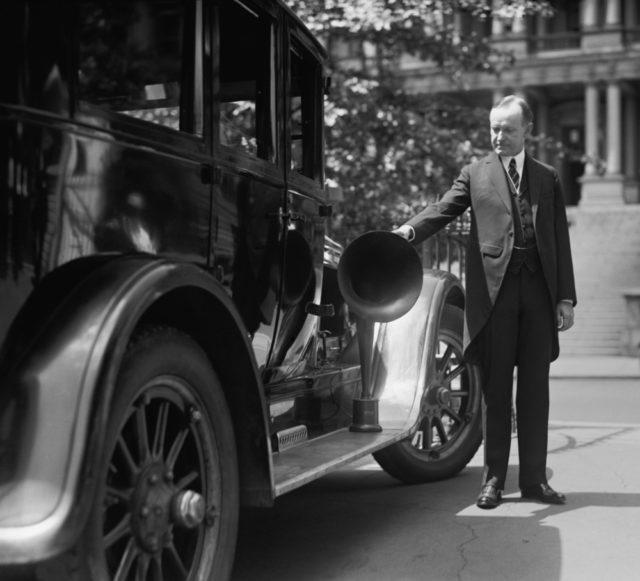 President Coolidge with a loud-speaker equipped car to be used in his 1924 presidential campaign/ shutterstock
President Coolidge with a loud-speaker equipped car to be used in his 1924 presidential campaign/ shutterstockOne example of this was Coolidge’s quest to have lynching classified as a federal crime. On a positive note, he successfully passed the Indian Citizenship Act. As a result, Native Americans living on reservations were considered to be citizens. He was very representative of the middle class of people.
26. Gerald Ford, Jr.
On the heels of Nixon’s resignation, Gerald Ford Jr. assumed the presidency from 1974 to 1977. Previously, Ford had pardoned Nixon. While in office, Ford participated in the Helsinki Accords.
The purpose of this was to improve the relations between the Soviet Union and U.S. The Accords were held throughout the Cold War.
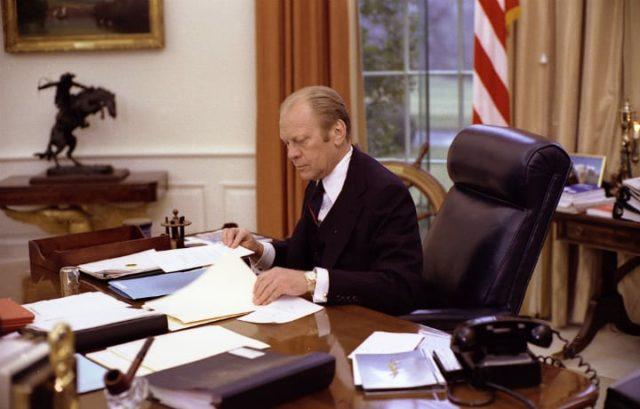 National Geographic Society
National Geographic SocietyFord’s political career was the direct result of a previous career in law. He made history by being the only U.S. President that held offices even though he was never elected.
25. Jimmy Carter
Jimmy Carter’s family business inspired him to participate in the civil rights movement. This is all it took to set him on track for a political career. As President of the U.S. he established both the Department of Education and the Department of Energy.
His work with Camp David resulted in the peace treaty between Israel and Egypt being signed.
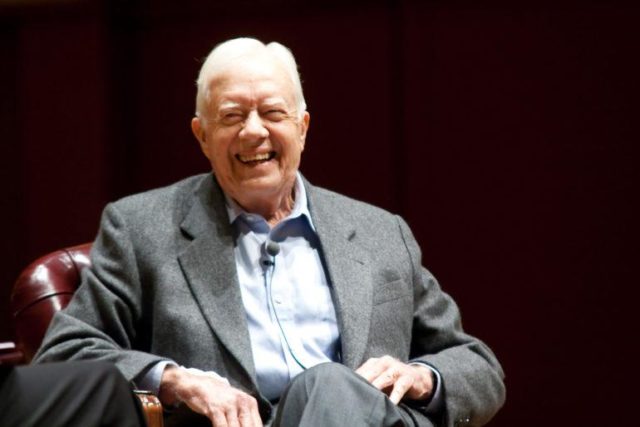 shutterstock
shutterstockThroughout his presidency he was no stranger to international crises. He handled the Iran Hostage and Energy crises. As a result, he lost the 1980 presidential election to Ronald Reagan. He was later awarded the Nobel Peace Prize in 2002.
Jimmy Carter Is Now the Longest-Living US President Carter, who turned 94 last October, will surpass the late George H.W. Bush’s age
24. William Taft
William Taft made history by following up his presidency with a role as U.S. Chief Justice. Prior to his presidency he studied law at Yale University. He went on to work as a lawyer and then a judge, all while in his twenties.
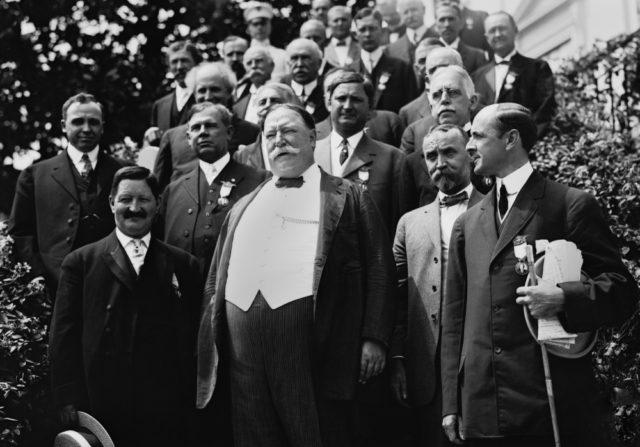 shutterstock
shutterstockAs President, Taft concentrated on helping East Asia. He involved himself in the affairs of Latin America. His goal to was prevent the toppling of its governments.
Topping the scales at over 350 pounds, Taft was a true political heavyweight . His nicknames Included “Big Bill” and “Big Lub”, but he Lost 70 Pounds After Leaving the White House.
Today, most people remember Taft as “the president who got stuck in a bathtub while in office.” No documentary evidence backs it up, and according to Brady Carlson ” the story didn’t arise until two decades after Taft left the presidency.
23. Grover Cleveland
During his lifetime, Grover Cleveland was a two time U.S. President. His first term was 1885 to 1889 and his second term was from 1893 to 1897. His best platform was advocating for reforms in politics. He had a fiscal policy that conservatives loved.
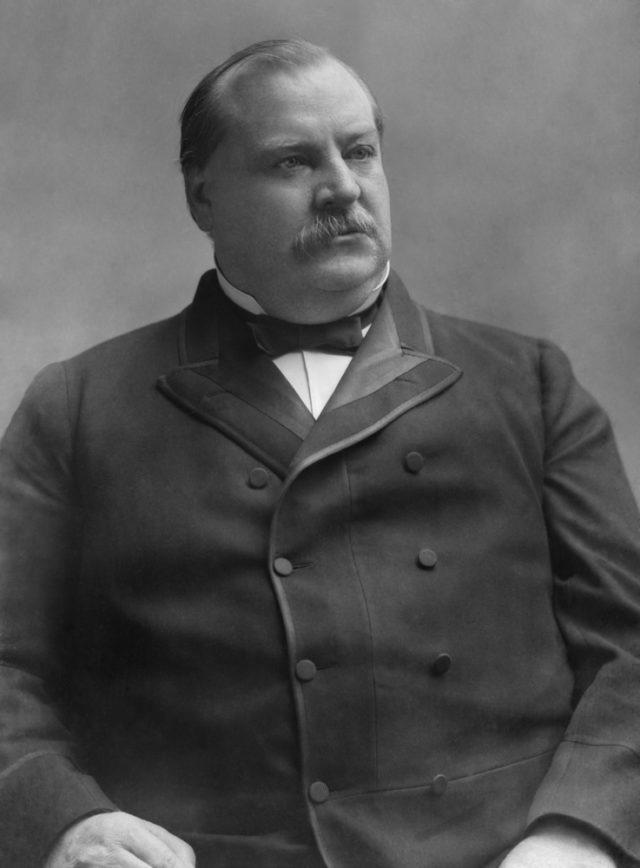 shutterstock
shutterstockCleveland later went on to manage the Panic, which happened in 1893. It was a time in which the economy was on a downward spiral. The next year, Cleveland handled the Pullman Strike, which shut down railroads. Though his first term was a success, hi second turn was considered lackluster.
When Cleveland was forty-nine, he married Frances Folsom at the White House becoming the only president to do so. They had five children together. Their daughter, Esther, was the only president’s child to be born in the White House.
22. Ulysses Grant
Prior to assuming the role of President, Grant participated in the Civil War. He was the Union Army’s commanding general. Grant graduated from the West Point Military Academy. He then went on to participate in the Mexican-American War.
During his time on office he was the youngest President the U.S. had ever had. He became President at the age of 47. While serving, he insured that Jewish and African Americans could be granted government officials positions. Grant also spoke out against the actions of the KKK.
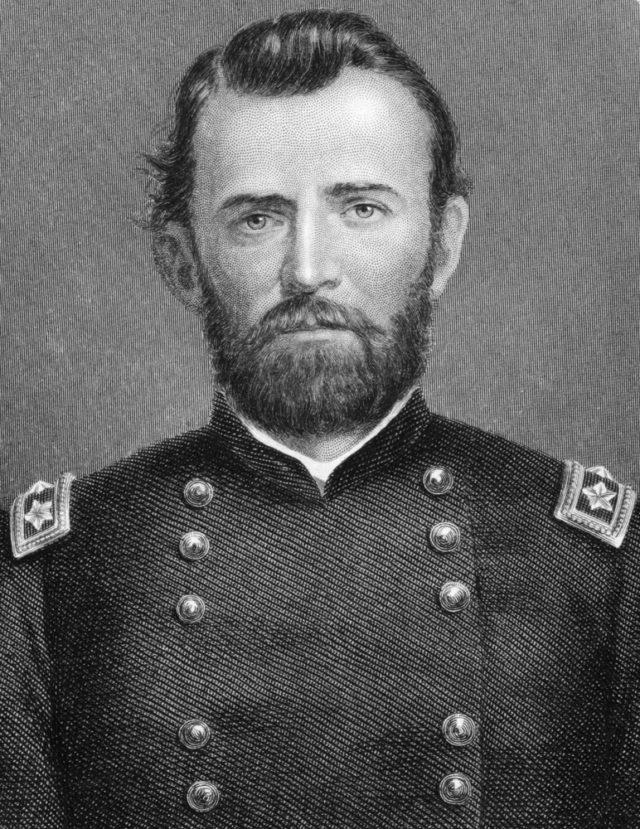 shutterstock
shutterstockAlthough he was always known as “Ulysses” during his youth in Ohio, Grant’s given name was actually Hiram Ulysses Grant. His phantom middle initial is the result of an error from Ohio Congressman Thomas Hamer, who accidentally wrote the future general’s name as “Ulysses S. Grant”
Grant was invited to join Abraham Lincoln at Ford’s Theatre on the fateful evening of April 14, 1865, but was forced to decline after he and his wife made plans to visit their children in New Jersey. He was informed of the President’s assassination when his train stopped later that night. Grant later described Lincoln’s death as the “darkest day of my life”.
21. George H. W. Bush
After serving as Reagan’s Vice President, George H. W. Bush ran the country from 1989 till 1993. Throughout his Presidency he addressed the Cold War, the Gulf War and the Berlin wall falling. He was known for his attention to domestic affairs.
Bush signed the North American Free Trade Agreement. He also established both the Clean Air Act and the Americans With Disabilities Act. He has also been criticized for supporting tough drug laws that led to the disproportionate incarceration of black people, as well as what activists call an insufficient response to the AIDS epidemic.
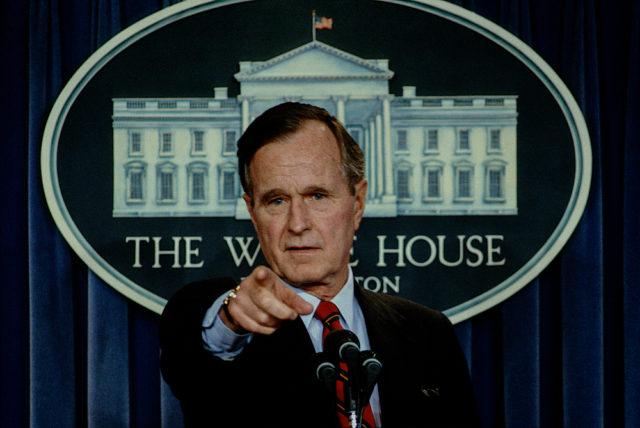 shutterstock
shutterstockBush, the 41st U.S. president, died in 2018 in Texas at 94. His remains were flown to Texas on Wednesday following a state funeral at the Washington National Cathedral attended by President Donald Trump, the four living former presidents and foreign leaders. The tributes have focused on the former president as a man of integrity and kindness who represented an earlier era of civility in American politics
20. John Adams
John Adams was praised for his efforts to help the Navy and Army grow. As a result, he is referred to as the “father of the American Navy.” His handling of conflict with France also made him one of the top presidents.
International relations were something he excelled at. Crisis leadership and moral authority were also attributed to Adams.
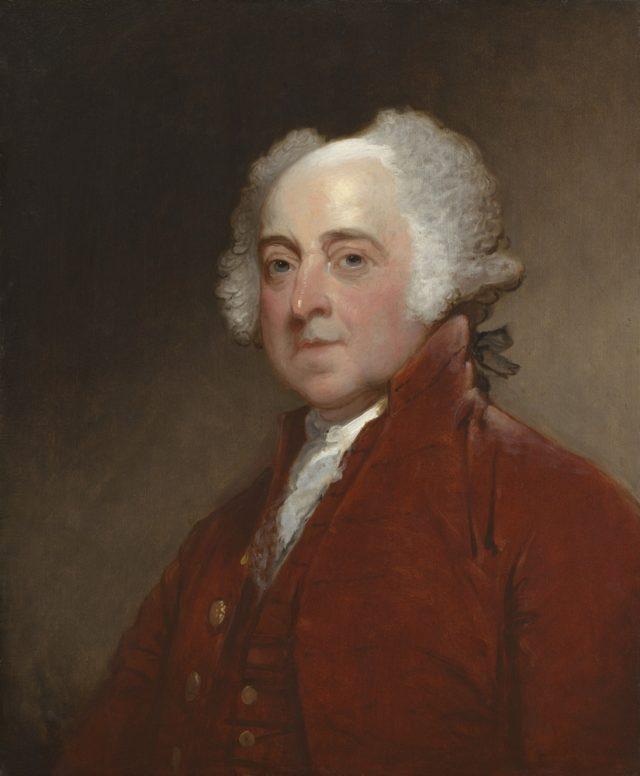 shutterstock
shutterstockAdams was the first president to live in the White House. He and his wife Abigail moved into the White House in 1800, before it was even completed, and lived there for four months before his term ended.
He was 90 years old when he died. No president lived longer than Adams until Reagan and then Ford, who were both 93 when they passed
19. John Quincy Adams
John Quincy Adams believed that each American should be treated as equals. He was extremely against the idea of slavery. Adams did not believe in intervening in politics.
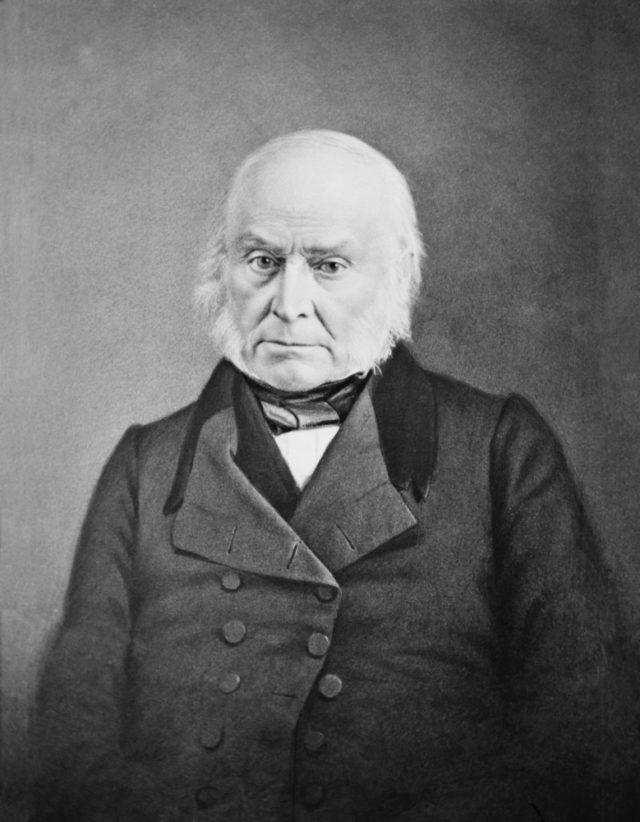
shutterstock
He completely shied away from the topic of European politics. His vision for the U.S. was a strong one, in part thanks to his dad and former President John Adams.
18. Andrew Jackson
Crisis leadership was also a specialty of Andrew Jackson. He was also excellent at persuading the public to see things his way.
Unlike any other U.S. Presidents, Jackson was captured in the Revolutionary War by the British, and held as a prisoner. At the time he was only 13 years old. He became a national hero.
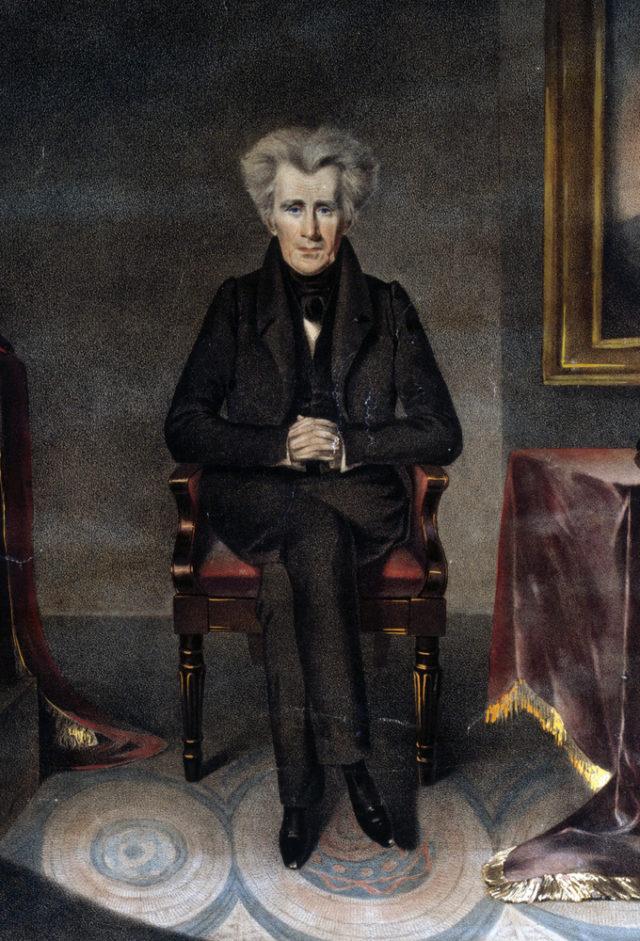 shutterstock
shutterstockDuring his Presidency he eliminated the national debt at the time. He also played a part in avoiding South Carolina from leaving the Union. Ironically, though he appears on the $20 bill, he didn’t support it. Jackson always preferred using silver and gold coins to paper money.
17. James Madison
Madison was one of the most influential of all the Founding Fathers. James Madison was mostly responsible for writing the first ten amendments to the US Constitution—the Bill of Rights.
Founding father James Madison guided the U.S during the War of 1812. He fought to create a national bank and improved upon the powers of government and the size of the military.
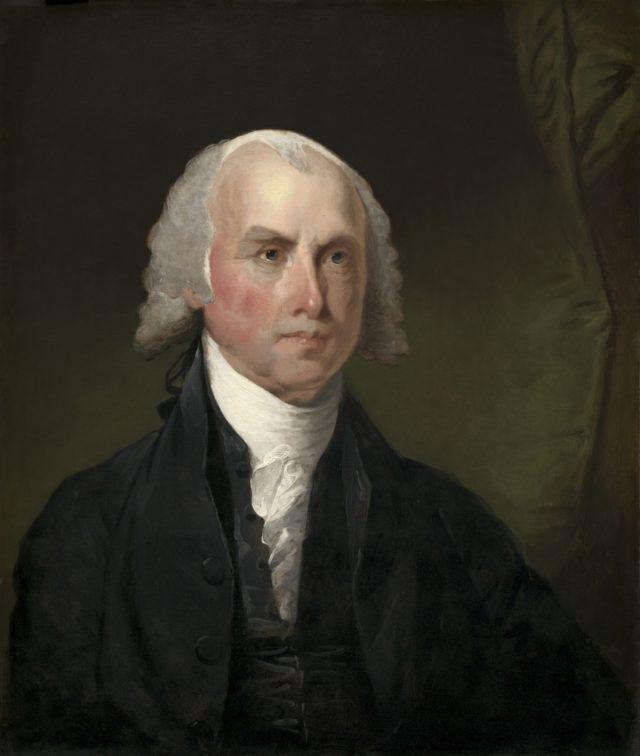 shutterstock
shutterstockMadison has the distinction of having been Princeton University’s first graduate student. Madison was introduced to his wife Dolley by Aaron Burr. The couple dated for just four months before their marriage in 1794. James was 43 years old; Dolley was 26. The couple was inseparable after the marriage.
16. William McKinley Jr.
The U.S. won the Spanish-American War under the leadership of William McKinley.
 Wikimedia Commons
Wikimedia CommonsHe was also the last President the country had during the Civil War. His work as President resulted in the U.S. economy’s advancing.
15. James Polk
Some historians consider James K. Polk to be the most successful US president, second only to George Washington. Polk was best known for his crisis leadership. He made history for being the first President to have his inauguration covered by telegraph news. He led the country to win the Mexican-American War.
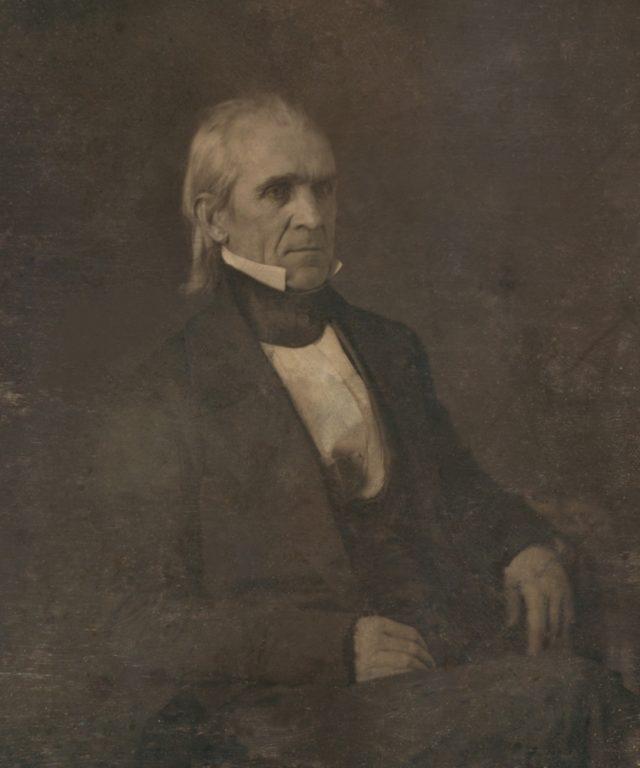 shutterstock
shutterstockThe Republic of Texas was annexed during Polk’s presidency.
14. Bill Clinton
Bill Clinton dubbed himself “the comeback kid,” and he proved it over and over by overcoming a difficult childhood, political setbacks , heart bypass surgery.
Clinton was the second-youngest president ever elected, when he defeated President George H.W. Bush and Ross Perot in 1992. He was 46 years old at the time of his inauguration. He remained popular personally even though his career was tainted by scandal.
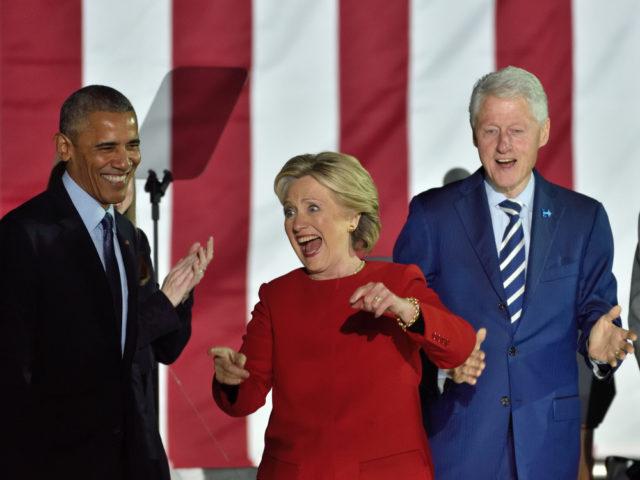 shutterstock
shutterstockClinton was excellent at managing the country’s economy. It expanded during his presidency more than anyone else’s. Health insurance and welfare reform were also areas he excelled in. When his presidency was over, he still had a 60% approval rating. This had not been achieved since the conclusion of World War II.
Since he left office in 2001, President Clinton and the former First Lady, Hillary Clinton, haven’t left the front lines of the American political scene.
13. James Monroe
James Monroe took part in the American Revolutionary War. The Monroe Doctrine was perhaps his biggest accomplishment during his time in office. However, he was also skilled at international relations.
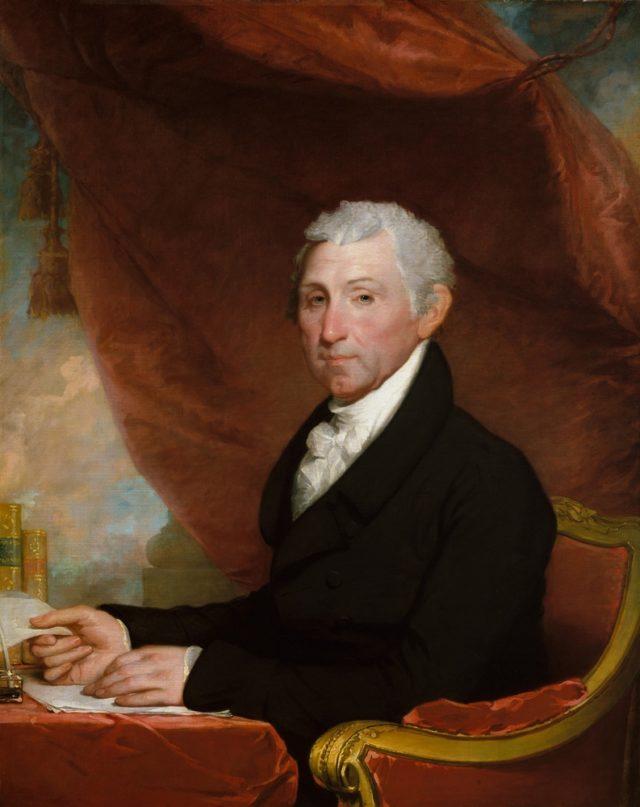 shutterstock
shutterstock12. Barack Obama
Barack Obama was the first leader of the U.S. to be African American . He is best known for his moral authority.
Obama was born in Hawaii on Aug. 4, 1961. He was named after his father, a government economist from Kenya. His mother was Ann Dunham, an anthropologist from Kansas. The couple divorced when Obama was 2. In 1967, his mother remarried an Indonesian oil manager and moved the family from Hawaii to Indonesia. Obama returned to Hawaii when he was 10 and grew up largely under the care of his maternal grandparents.
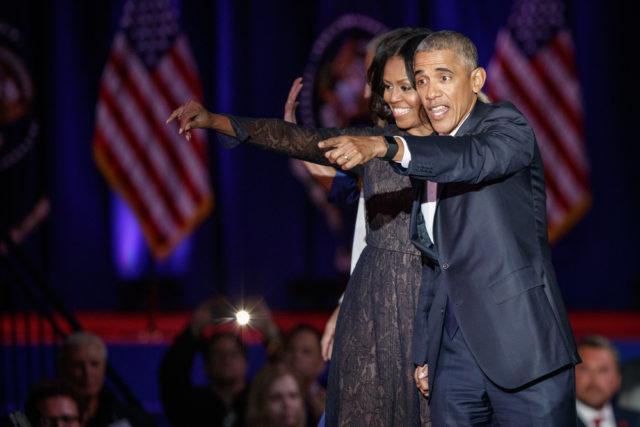 shutterstock
shutterstockObama graduated from Columbia University in 1983 with a degree in international relations. After working in Chicago as a community organizer, Obama entered Harvard Law School in 1988. After graduation he practiced civil rights law and taught constitutional law at the University of Chicago. He served in the Illinois State Senate for eight years.
Obama was elected to the U.S. Senate in 2004 and on Nov. 4, 2008, Obama was elected president. Obama was able to eliminate the “Don’t Ask Don’t Tell,” policy used by the military. He also made normal all U.S. relations with Cuba.
He is married to Michelle Obama, a 1988 graduate of HLS. They have two children, Sasha and Malia.
11. Lyndon B. Johnson
Lyndon Johnson focused on passing domestic laws during his presidency. Laws passed by Johnson included those pertaining to Social Security, civil rights, and welfare.
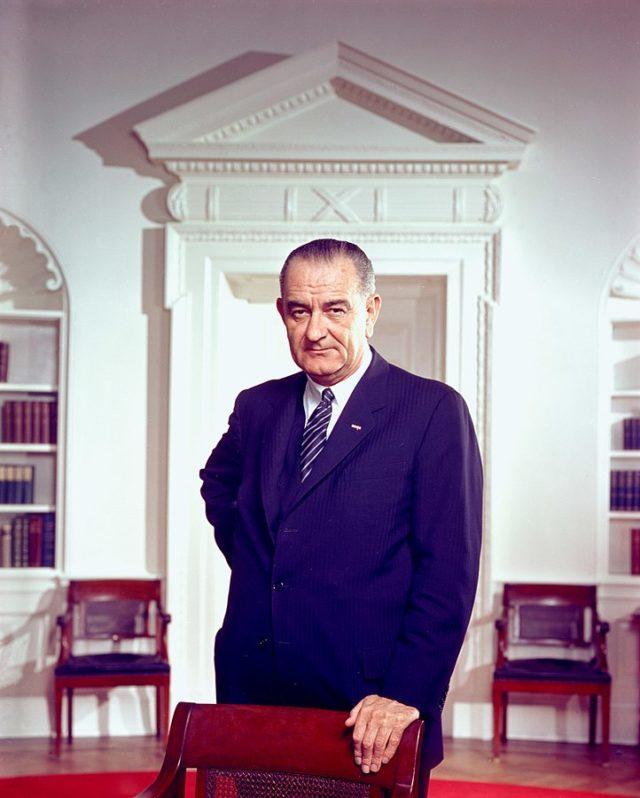 commons wikimedia.
commons wikimedia.Medicaid and Medicare were expanded thanks to Johnson’s efforts. He was also praised for his relationship with Congress
10. Woodrow Wilson
Woodrow Wilson served two terms as U.S. President. His public persuasion skills made him much loved. He served as President throughout World War 1.
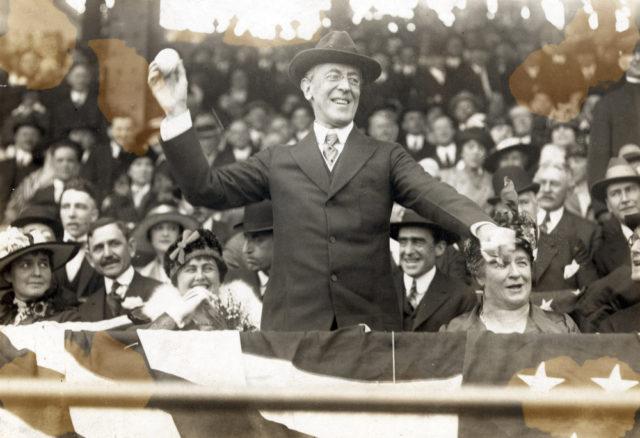 shutterstock
shutterstockIn part, the war ended based on Wilson’s involvement in the Treaty at Versailles. Despite disapproval by Congress, Wilson wanted the U.S. to become a part of the League of Nations.
9. Ronald Reagan
Public persuasion was perhaps Ronald Reagan’s specialty. He ended both the Iran-Contra affair and the Cold War between the Soviet Union and U.S.
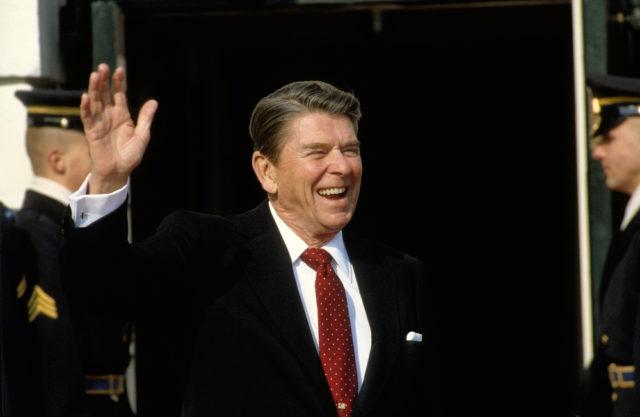 shutterstock
shutterstockReagan is noted in history as stating that the Berlin wall needed to be torn down.
8. John F. Kennedy
President John F. Kennedy captivated the American public and that continues today. John Fitzgerald “Jack” served as the 35th president of the United States from January 1961 until his assassination in November 1963.
He served at the height of the Cold War, and the majority of his presidency dealt with managing relations with the Soviet Union
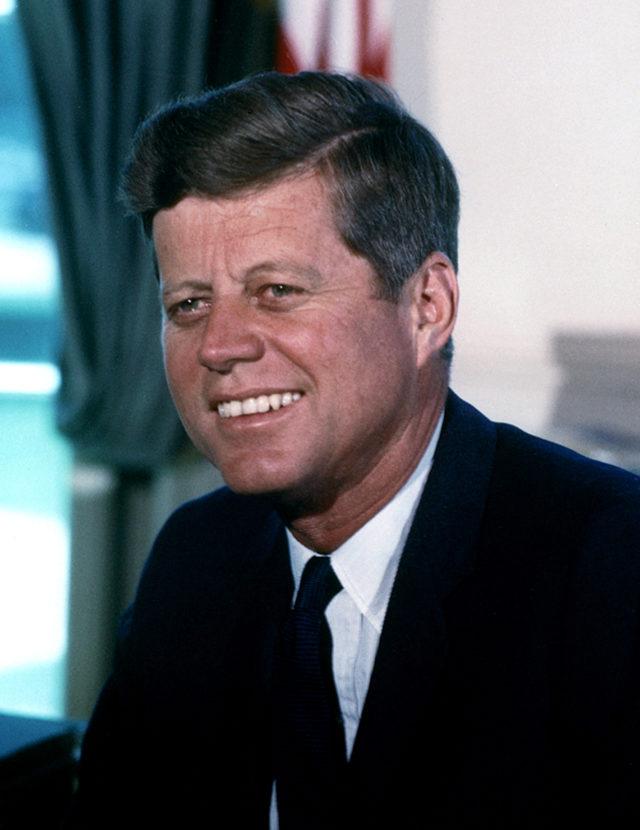 wikimedia
wikimediaNot only did JFK lead the Cuban Missile Crisis, he also created the Peace Corps. He was best known for skills at persuading the public.
7. Thomas Jefferson
Thomas Jefferson is best known for having written the Declaration of Independence. He also worked with France on the Louisiana Purchase. This doubled the amount of territory the U.S. had. He was instrumental in advocating tolerance to and freedom of religion.
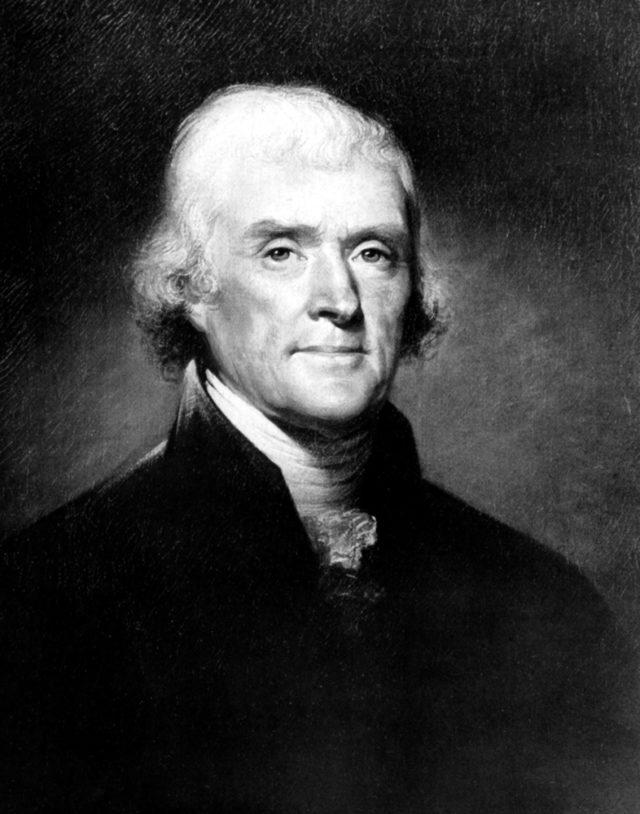
Thomas Jefferson was the first president who had guests shake his hand instead of bow to him. He had dinner guests placed at a round table so everyone felt equally important.
6. Harry Truman
Prior to serving as President, Harry Truman fought in World War I. At the end of World War II he started his Presidential term. He made history, as no other President used nuclear weapons but him.
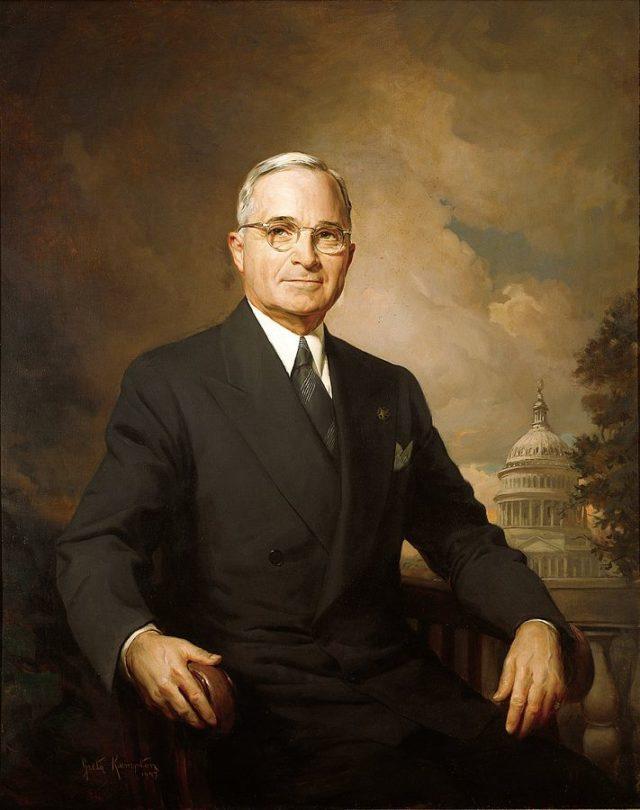 commons wikimedia
commons wikimediaTruman excelled at seeking equal justice and in leadership during times of crisis.
5. Dwight Eisenhower
One of the most popular U.S. presidents in history, Dwight David Eisenhower won the presidency twice on the back of national adoration for his leadership in WWII as General of the Army.
 defensieweb wikia
defensieweb wikiaEisenhower served as president from 1953 to 1961, during which time he significantly expanded the highway system, created NASA, and put five justices on the Supreme Court
Dwight Eisenhower desegregated the U.S. Armed Forces. He was excellent at international relations as well. Eisenhower was asked by both parties to run for the White House in 1948 since he didn’t have a declared political party membership. Four years later, he chose to run as a Republican during the conflict with Korea.
4. Theodore Roosevelt
Vice President Roosevelt became president in 1901 immediately following the assassination of sitting president William McKinley. At the age of 42, he was—and remains—the youngest president in the country’s history.
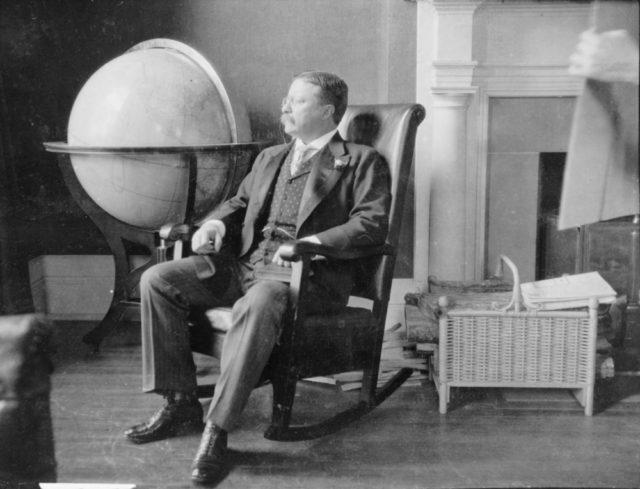
Theodore Roosevelt was a Nobel Prize Winner. He also ended the Russo-Japanese War. Construction on the Panama Canal began because of him.
Theodore “Teddy” Roosevelt (1858-1919), was responsible for putting a name to the teddy bear phenomenon after a newspaper cartoon depicted him refusing to shoot an injured bear on a hunting trip.
3. Franklin Roosevelt
Franklin Roosevelt was the 32nd American President from March 4, 1933 to April 12, 1945. Franklin Roosevelt was elected U.S. President four times. He helped the U.S. win WWII.
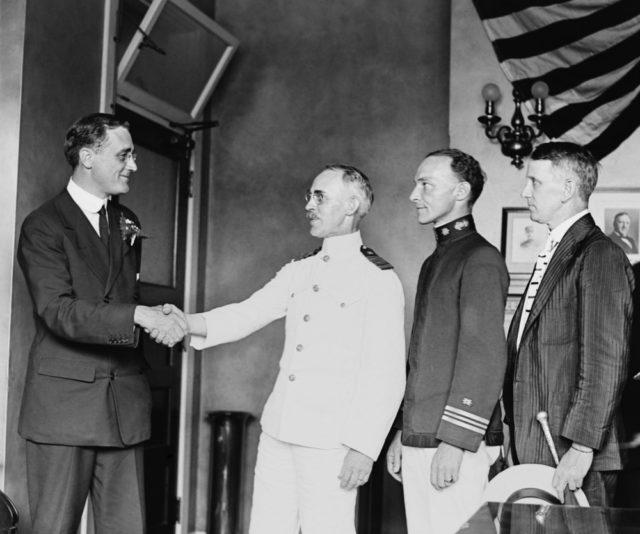 shutterstock
shutterstockHe led the nation out of the Great Depression and towards victory in World War II.
The President’s famous quote : “The test of our progress is not whether we add more to the abundance of those who have much; it is whether we provide enough for those who have too little.”
2. George Washington
A revered soldier and political leader, George Washington was the Father of our country and has always been one of the most iconic figures in American history.
Washington is the only US president to have never occupied the White House. In New York and then later in Philadelphia, the Washingtons occupied a series of grand houses, where they received members of Congress, officials, foreign dignitaries, and other prominent people according to a standing weekly schedule.
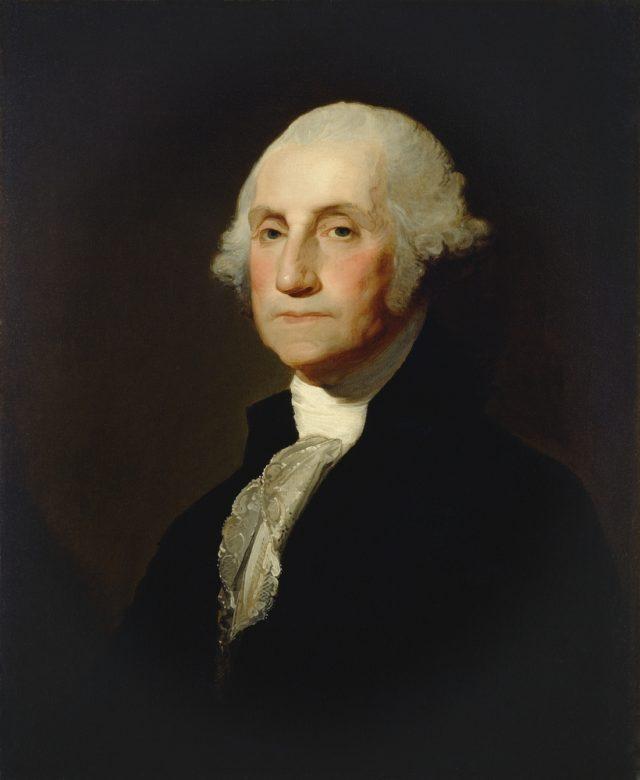 shutterstock
shutterstockWashington never actually ran for president; he was drafted by popular demand. He refused to accept a salary as president and even spent some of his own money to pay the salaries of cabinet ministers and other members of the executive branch.
Washington led the Continental Army throughout the American Revolutionary War. He also developed the tax system and the government seat.
1. Abraham Lincoln
Freeing the slaves was Abraham Lincoln’s main accomplishment as President. Though he added a 13th amendment to the Constitution he didn’t live to see it passed. He served as president for 5 years, from 4 March 1861 until his assassination by John Wilkes Booth on 15 April 1865.
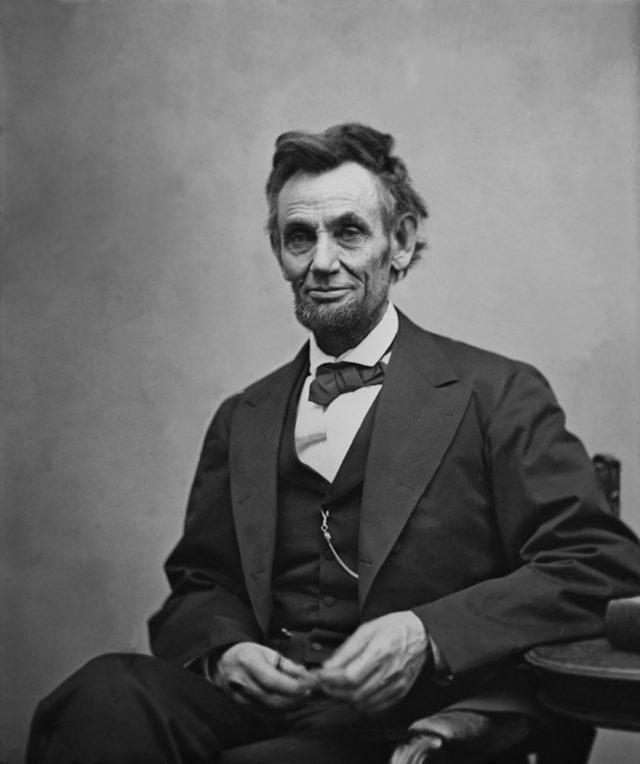 shutterstock
shutterstockAlong with George Washington and Franklin D. Roosevelt, most polls of academic historians, political scientists and the general public put Lincoln as one of the 3 all-time greats.
Lincoln was a ‘president of firsts’ – he was the first bearded US President, the first to hold a patent and the first to be in an inaugural photograph.
Abraham Lincoln not only was a great president but also was a great wrestler! He was defeated only once in about 300 matches.
Which university has the most presidents as alumni?
1. Harvard University
Harvard University gave an education to 8 U.S. presidents. Those being President Obama, President George W. Bush (M.B.A. ’75) and Presidents John Adams, John Quincy Adams, Rutherford B. Hayes, Theodore Roosevelt, Franklin D. Roosevelt, and John F. Kennedy as Harvard graduates chosen to serve as the nation’s chief executive.
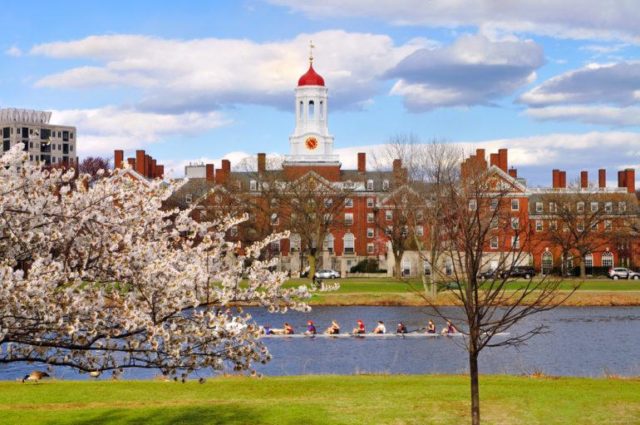 shutterstock
shutterstockFounded in 1636, Harvard University in Cambridge, Massachusetts, has existed significantly longer than the office of the president or the United States itself. It has seen the most future presidents out of any school.
The first president to hold a college degree, John Adams, graduated from Harvard. The most recent graduate, Barack Obama earned his law degree in 1991 at Harvard Law where he served as an editor of the Harvard Law Review. Obama’s predecessor, George W. Bush graduated from Harvard Business School and was the only president with a business school graduate degree.
2. Yale University
While Harvard was popular with the Adams and Roosevelt presidents, the Bushes and Clintons attended fellow New England Ivy League school Yale University. William Howard Taft, George H. W. Bush and George W. Bush all attended Yale for undergraduate studies while Gerald Ford and Bill Clinton earned their law degrees at the New Haven university.
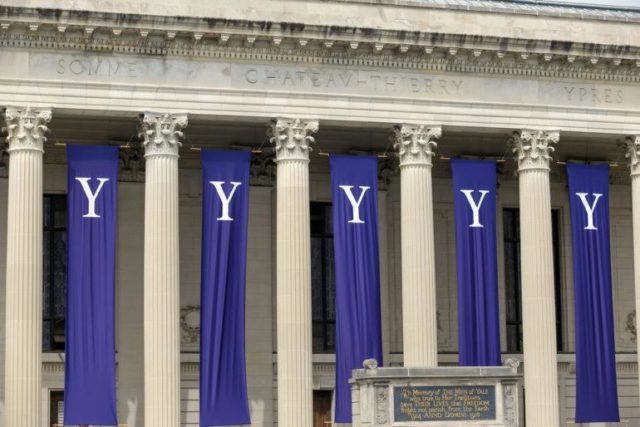 shutterstock
shutterstockFor 20 year from 1989 through 2009 the president had earned at least one degree from Yale. Former first lady Hillary Clinton also attended Yale Law School. Taft was on the faculty of both Yale and Yale Law in the early 1900s.
3. College of William and Mary
William and Mary is the second oldest higher education institution in the U.S. The Williamsburg, Virginia research university is now a “public ivy,” but when former presidents Thomas Jefferson, James Monroe and John Tyler attended the school was private. Jefferson and Tyler served both as vice president and president.
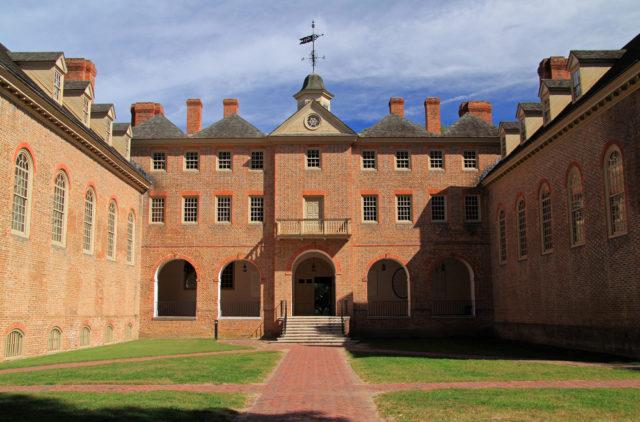 shutterstock
shutterstockAlthough George Washington did not receive any formal college degree, the first president did earn a surveyors certificate from William and Mary and was the chancellor of the school in the late 1700s
4 . Princeton
A total of three presidents attended Princeton University — which was originally known as the College of New Jersey.
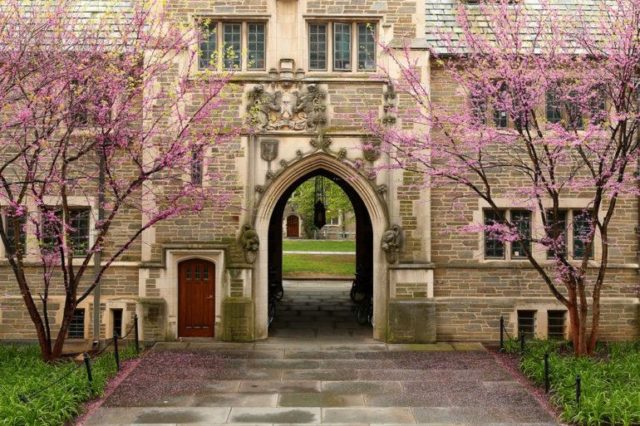 shutterstock
shutterstockJames Madison and Woodrow Wilson are the two presidents to graduate from Princeton University. John F. Kennedy only studied at Princeton for a brief while, before transferring to Harvard.
The three vice presidents to graduate from Princeton are George M. Dallas (serving under James K. Polk), John C. Breckinridge (serving under James Buchanan) and Aaron Burr (serving under Thomas Jefferson).
Who is the longest living U.S. president?
Jimmy Carter Is Now the Longest-Living US President Carter, who turned 94 last October, will surpass the late George H.W. Bush’s age . Carter also holds the record for living the longest after his presidency ended. Carter was diagnosed with cancer in 2015 but went into remission less than a year later. His wife, Rosalynn Carter, 91, is also a noted volunteer.